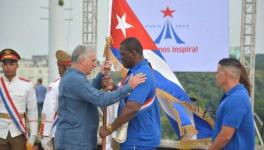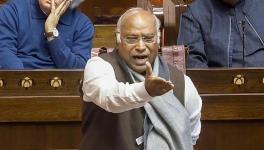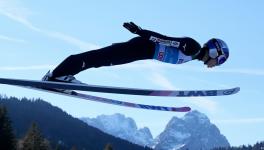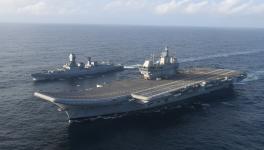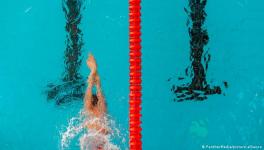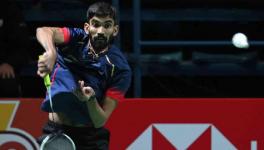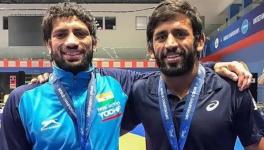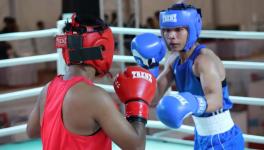Olympics on Sail: Medal, Mettle and Mayhem in Munich
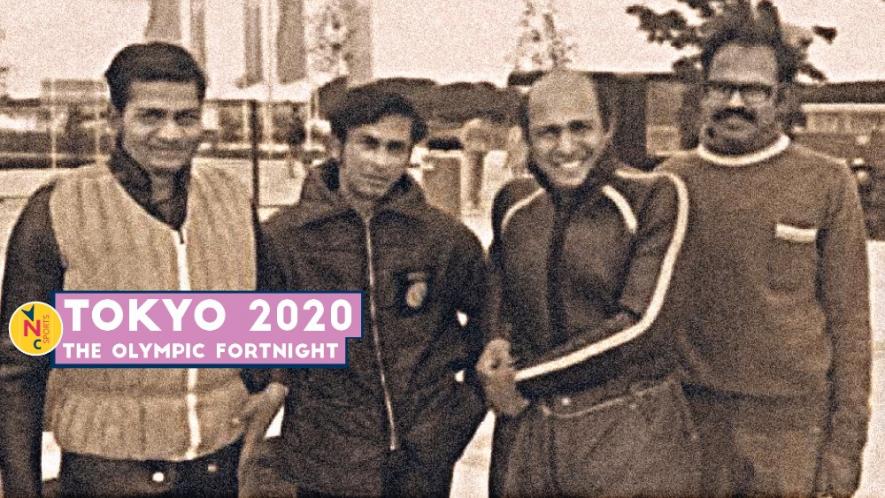
From left: Maj. AA Basith, Lt. Tehmasp Mogul and Capt. Soli Contractor at the 1972 Olympics where he represented India in sailing (Flying Dutchman class).
The reverse of the 1972 Olympics medals feature Castor and Pollux, the sons of Leda, twins who had different fathers. Castor, the son of the King of Sparta, was mortal. Pollux, the son of Zeus (who raped their mother disguised as a swan), was immortal. Hold on to the disgust. This tale is from a patriarchal time much like ours.
On the medal the two are sculpted alike, featureless long limbed alien figures standing side by side, arm in arm. Designed by the famous German sculptor Gerhard Marcks, this is Bauhaus at the Olympiad.
Except, the one on the left is slightly taller than the other. His face is slimmer too, more angular. You’d be able to tell the twins apart, mostly because the artist was a human. Human beings aren’t perfect. At the Olympics this is tough to tell — being as it is an exhibition of human excellence — but this is true. Look at the medal.
Click | For more from ‘Tokyo 2020, The Olympic Fortnight’ series
Captain Sohrab Janshed ‘Soli’ Contractor does not own a medal from the Games. An object, though, isn't the only supplier of memory. A navy man who learnt sailing in Mumbai, Capt. Contractor was part of the first ever Indian sailing team to take part in the Olympics. He wasn’t technically in Munich in the summer of 1972, but he was at the centre of the drama all the same.
“We were on the boat,” he says, sitting in his home in Mumbai, a beautifully crafted and kept, old house littered with curios and histories in a uniquely Parsi manner. “We were probably on the boat when it happened.”
At dawn on the September 5, 1972, in the Olympic village 700 kilometres from Kiel (the sailing venue of the Games where Contractor was), 11 Israeli athletes and coaches, and a West German police officer, were killed in an attack by the Palestinian Black September Organisation. This attack was solely responsible for many European countries establishing a counterterrorism task force within their borders. 9/5 was for the Olympics what 9/11 was for the world.
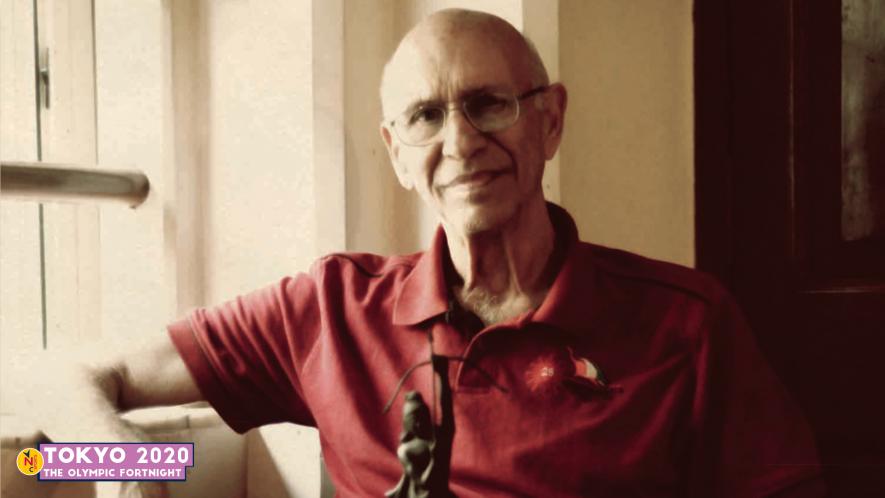
Capt. Contractor was on the boat when the police motorboats streamed across the course. He and fellow crewman Major AA Basith had just finished the race when the commotion erupted. By the time they got to the shore, the motorboats had packed up the Israeli athletes, competition boat in tow, and sped away. Not long after, the authorities came back and called off the races for the day.
“Our tent was right next to theirs,” Contractor remembers. “They were arranged alphabetically, you see.”
Die Heiteren Spiele. The Cheerful Games. That’s what the ‘72 Games’ official motto was. Because there was nothing cheerful about Germany’s Olympic history. It was the dawn of the modern Olympics. It was the dawn of new art. Gone were straight lines and right angles. Architecture was best expressed via curves.
When Capt. Contractor and Maj. Basith reached the shore they were led, along with the other athletes, to the mess in the sailing village under maximum security. Everyone sat around a projection screen, watching events as they unfolded in Munich.
India’s first two sailing Olympians watched on screen as the picture of an unknown man in a balaclava became the defining image of the ‘modern’ Games.
******
The first time Sohrab Janshed Contractor went sailing, he was barely 10 years old. If you have ever heard the Velvet Underground avant garde masterpiece, Heroin, you will remember the lines that go, “I wish that I was born a thousand years ago, I wish that I'd sailed the darkened seas…. Away from the big city, Where a man cannot be free.” But that’s the crazy irony about Mumbai. The sea is part of the big city. And the sea keeps it free. His outings at sea were a childhood routine. He spent time with his father. He spent time at sea.
He followed into the family tradition and joined the National Defense Academy immediately after school, and there the routine became a release. Sailing was a hobby, a way to be alone even if it was for the briefest of time. Team sports were mandatory. Contractor played hockey. He was good at it, but just enough. It was just like sailing. A way to find solace through sport. There was no need to go professional. Upon graduation, he preferred to train further with the Navy.
Also Read | Dichotomy of Gold: India and the Moscow Olympics
On a trip to Mombasa in 1965 — the Captain was now part of a ship’s staff — he was injured on the hockey pitch. He lost a kneecap — he would regain full mobility of it over time — but the multiple surgeries and time spent in physiotherapy meant the Navy eventually declared him ‘medically unfit’ for sea. Which was ridiculous, because the first time Contractor went to the sea, was when he was barely 10 years old.
The sea found him. He was posted in Kochi in 1967, the year the city hosted the Nationals. By then he had struck up a close friendship with a fellow officer, Lieutenant Tehmasp Mogul, who asked him to join his crew for the Nationals. The duo ended up winning the National title — despite not winning a race in any category. Consistency, you see, was key. They finished second in each of the six races they participated in. Over the next two years, Capt. Contractor defended his title in Mumbai (‘68) and New Delhi (‘69). People took notice, and figured that there was something here worth going pro for.
How pro? A sideways movement at best. When Capt. Contractor and Major Afsar Hussain were pointed to their boat for the 1970 Asian Games in Thailand, they may as well have been playing a scene out of a shipwreck movie. “Yes, it was probably like that, although I’m not sure what shipwreck movies were around then,” he mutters. Mutiny on the Bounty, 1935 and 1962? He laughs.
“Well anyway, it was like that. We were pointed to an upturned boat in a coconut grove by the beach.” The duo did what Marlon Brando would have. That is to say, they rolled up their sleeves and got to work, scrubbing and salvaging what they could from their piece of junk to make it look presentable enough for entry into competition. Quite fortuitously, the Japanese team, complete with technical crew, support staff and engineers, pulled over to offer their services. Or perhaps it was just pity. Japan had, after all, the best sailing team in the competition. In any case, they got to the job and within a few hours the boat was deemed ready.
While the sailors had been fixing the boat, the team manager found a sailmaker and procured to everyone’s great surprise (“I don’t know what he paid. I don’t know how”) a set of sails. With this hastily prepared boat, registered in the ‘Enterprise’ category, they won bronze at the Games.
Two years later, they got to the Olympics with their own boat — albeit purchased via Capt. Contractor’s contacts in London. “It was the fastest boat going at the time, the Flying Dutchman,” Capt. Contractor says, “and then when we got to Kiel we realised our racehorse was actually quite a khachhar (mule).” They landed there with a single mast, a single set of sails and practically no equipment for repairs. Every evening after races, the Captain’s wife, Jer, and a friend, Rati Oonwala, would sit and patch the sails together.
Capt. Contractor and Major Basith finished last in their class, but won everyone over with their refusal to give up. They were overnight heroes in an event desperate to recover from the worst press coverage possible.
The Games were back on, but the stench remained. Any representation of the Olympic ideal — the diligence, dedication and sportsmanship trope — was a victory. The Indians, their hand-mended sails, their ramshackle second-hand boat and under-equipped crew were just the kind of distraction the press loves to peddle. The narrative had been tweaked. Their suffering and sub standardness became a beacon of hope for all. Look they had nothing. But they never gave up. Questions were drowned in adulation.
******
There are many theories about the repercussions of Black September’s attack on the Olympic Games. Secure bubbles, minimal interactions, video surveillance, geo tagging, were slowly integrated into the Olympic experience. How much security, observers ask? And governments answer this much. There may be no correlation here, but increased security has also meant increased risk taking.
Perhaps the one thing that Black September did, was reveal to those in charge how big the Olympics could become. Those images of the man wearing the balaclava, the two helicopters at the airfield and the subsequent shootings were all broadcast on television, for hours on end. Over 900 million people were tuning in to watch the events that blemished the Games. It provided a blueprint for future terrorists to follow (stage dramatic attack in front of cameras. Let cameras spin the rest). It also, perversely, exposed the power television broadcasting had on public consciousness. ’72 was a reset for the media landscape. A regurgitation perhaps. Broadcasters didn’t take a step back and reevaluate the responsibility of power. They seized at the power source — in this specific case the Olympics itself.
Also Read | Bajrang Punia Enigma: A Patient Indian, An Impatient Wrestler
It has led to where we are today, 48 years on, where the International Olympic Committee (IOC) announced dates for a postponed Olympics first and is hoping to figure out the protocols for it later. It’s a bit like the leader of a nation announcing the date of release for a vaccine first, and talking to the scientists later. It’s a bit [Rainer Maria] Rilke, minus the nuance. Experience this. Remember this. Take it all in. Don’t worry, everything will be alright. Nothing is final.
Upon his return from the Olympics, Capt. Contractor submitted a report to the Indian government, outlining his observations and suggestions to guarantee future success in the sport. In the 11 editions since, Indian sailors have gone to the Olympics five times. Not once have they finished in the top 10.
But some things are. The world moves on. And those who don’t move with it get left behind. The Olympics have grown exponentially. In comparison, Indian sport at a snail’s pace. On one front though international and Indian sport converge. The focus remains on getting eyeballs to the action, so that people stay distracted from the rot. Bread and Games. Television soothes all.
There was a time when broadcasters needed sport. Then there was a time when they needed each other. Now, much like Marcks’ Castor and Pollux, they are together in the fight, arms around each other, featureless entities with massive reach. Except, there’s a problem. One is visibly bigger than the other.
Get the latest reports & analysis with people's perspective on Protests, movements & deep analytical videos, discussions of the current affairs in your Telegram app. Subscribe to NewsClick's Telegram channel & get Real-Time updates on stories, as they get published on our website.









